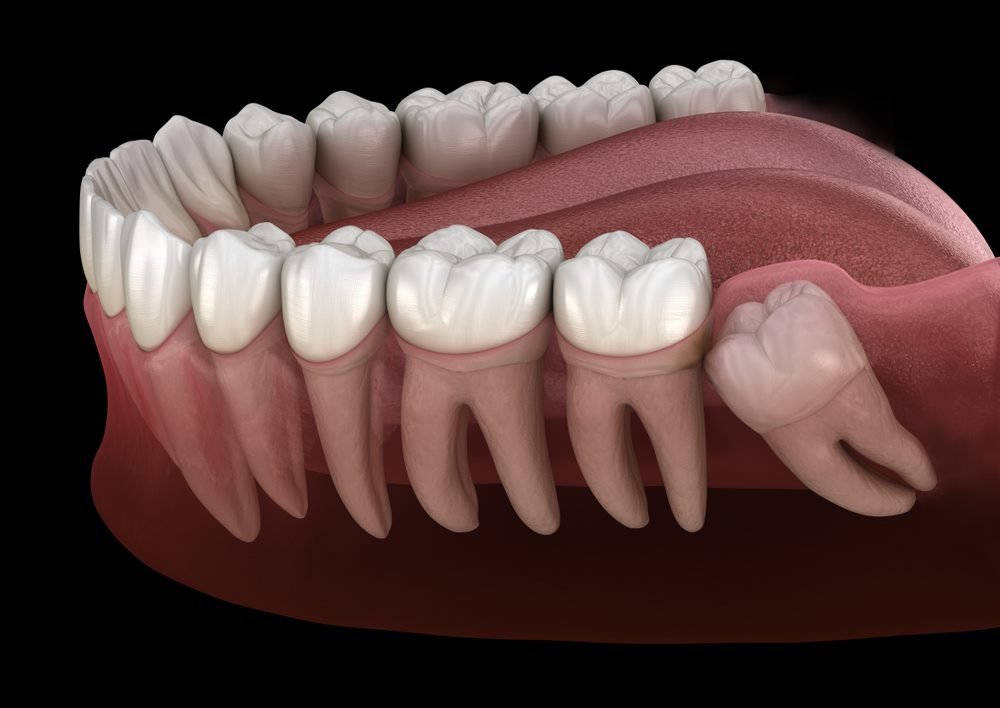Although the emergence of wisdom teeth is a natural part of development, they can often be a nuisance rather than a benefit. Wisdom teeth, otherwise known as the third molars, are teeth that sit behind the second molars and are the last to descend. They typically start to emerge between 17 and 25 years of age, however, they can start to emerge much later than this.
Did you know that not everyone has four wisdom teeth? Some people may even have none! In others, the wisdom teeth can stay buried for their entire lives.
Here, we tell you what signs could indicate that your wisdom teeth are erupting, what type of problems they might cause, and what you should do if you notice them.
Signs Wisdom Teeth May Be Erupting
Although some people experience no discomfort when their wisdom teeth are erupting, others may experience mild discomfort including:
The appearance of white specks behind the second molars (back teeth).
An itchy sensation in the gums - much like you experienced when your other adult teeth came through when you were a child.
Some may experience significant discomfort at the back of the jaw accompanied with:
Redness and swelling in the areas where the wisdom teeth are partially emerged or are about to emerge.
Difficulties opening and closing the jaw due to pain.
A strange taste or odour from the mouth.
Pain that radiates to the ear or along the jaws.
If you experience any of the above symptoms it's important to visit your dentist promptly, as you may have an infection.
The Problems Wisdom Teeth May Cause
Whilst in some cases wisdom teeth may descend smoothly and cause no problems, other individuals may find that they cause unwanted issues. Wisdom teeth may:
Grow sideways or at an awkward angle. This not only causes discomfort, but it can also mean sufferers can't eat properly as these teeth can cause uncomfortable rubbing and biting of the cheek.
Become impacted. This means that the wisdom teeth don't descend fully and part of the tooth can remain buried in the gums, making them very difficult to clean. Over time, they may become decayed and sadly, they can often cause the adjacent tooth to become decayed as well. Impacted wisdom teeth also increase the chances of developing gum disease
Become decayed. Sometimes wisdom teeth are positioned so far back that they are impossible to reach with a toothbrush. For this reason, it may be recommended that you remove your wisdom teeth to prevent decay, pain and infection in the future.
For many young people, removing wisdom teeth is the best course of action to maximise the chances of long-term dental health.
Options for Managing Wisdom Teeth
Your dentist will usually spot your wisdom teeth that are beginning to erupt during your six-monthly check-up. If your wisdom teeth are causing uncomfortable symptoms, we recommend scheduling an appointment promptly, so that they can be looked at.
As well as completing an examination of your jaw and teeth, the dentist will also usually take X-rays to gain a better idea of the position of the wisdom teeth. This will give them the information needed to decide whether it's in your best interest to have the wisdom teeth removed.
In most circumstances, it makes sense to follow your dentist's recommendations when it comes to wisdom teeth. Leaving poorly positioned or impacted wisdom teeth in position despite your dentist's recommendations is usually a surefire way of storing up dental trouble for the future.
Contact Us
If you are looking for professional dental advice, give our team a call today.

